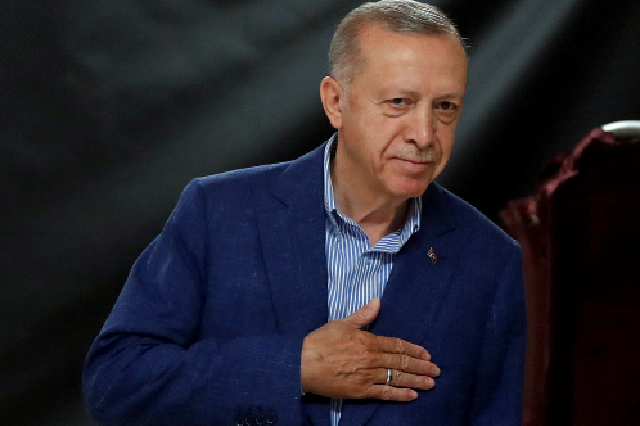You are here
Erdogan proposes vote on right to wear Islamic headscarf
By AFP - Oct 22,2022 - Last updated at Oct 22,2022

This handout photograph taken and released on Thursday by the Press service of the President of Azerbaijan, shows Turkish President Recep Tayyip Erdogan (left) and Azerbaijani President Ilham Aliyev cutting the ribbon during the inauguration ceremony of Zangilan airport (AFP photo)
ANKARA — Turkish President Recep Tayyip Erdogan on Saturday proposed a nationwide vote on guaranteeing a woman's right to wear a headscarf in state institutions, schools and universities.
The subject is particularly important for devout Muslim Erdogan, whose Islamic-rooted ruling party lifted a long-standing ban on wearing the hijab in state institutions in 2013.
The headscarf issue has dominated political debate in recent months ahead of general elections in 2023 that are set to be one of the most serious challenges to Erdogan's two-decade control of Turkey.
Erdogan often refers to the ban's lifting as an example of how his party represents devout Muslim Turks against secular parties that ruled Turkey before his party's arrival in 2002.
"If you have the courage, come, let's put this issue to a referendum... Let the nation make the decision," Erdogan said in remarks aimed at main opposition party leader Kemal Kilicdaroglu.
Kilicdaroglu leads the secular CHP, a party established by the founder of the secular modern Turkish republic, Mustafa Kemal Ataturk.
The CHP leader had proposed a law to guarantee the right to wear a headscarf to alleviate any fears his party would reinstate the ban.
The headscarf was at the centre of debates in the 1990s but no party today proposes a ban in Muslim-majority Turkey.
"We had made mistakes in the past regarding the headscarf," Kilicdaroglu admitted earlier this month. "It's time to leave that issue behind us."
Kilicdaroglu seeks to show religious voters they have nothing to fear from opting for his secular party next year, experts say.
In response, Erdogan proposed a constitutional change that would "soon" be sent for approval to the parliament where his party holds a small majority with his nationalist alliance partner.
But under Turkish law, changes require 400 lawmakers to pass without a need for a referendum and so the CHP would need to give its backing.
Otherwise, with 360 votes, a proposal can be put to the people.
"If this issue cannot be resolved in parliament, we will submit it to the people," Erdogan said.
Related Articles
CORUM, Turkey — Turkey's opposition is fielding a leftist candidate known for impassioned speeches and even anti-American rhetoric in a bid
ISTANBUL — Turkish President Recep Tayyip Erdogan closed in on victory Sunday in a historic runoff that posed the biggest challenge to his 2
ISTANBUL — Turkish President Recep Tayyip Erdogan declared victory on Sunday in a historic runoff vote that posed the biggest challenge to h

















